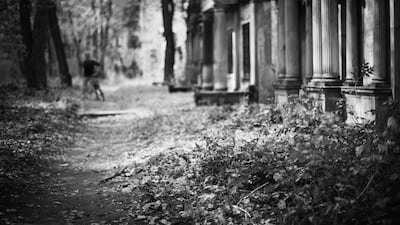The Austrian novelist Alois Hotschnig, considered one of the finest creative minds of his generation by many European critics, has made a name for himself writing dark, disturbing, dreamlike stories that have attracted favourable comparisons with Franz Kafka.
In the English PEN Award winner's latest offering, Ludwig's Room [Amazon.com], which has just been translated – beautifully – into English by Tess Lewis, a profoundly death-obsessed man, Kurt Webber, inherits his great-uncle's lakeside house in a seemingly idyllic town that harbours some very dark secrets.
The fact that he has chosen to return to the place of his birth is a bit perplexing (free house not withstanding), as most of Landskron’s inhabitants are about as warm and inviting as a walk-in freezer full of corpses, and his memories of growing up clearly contribute to his constant state of suicidal depression.
Meet the Webber clan: “In my family, there was always someone who’d just committed suicide or had just attempted it. But for each one that passed, another one arrived, at least one. We’ll never die out. The little that binds us – ineptitude, malice, unreliability – is in fact our strength.”
Now take a stroll with Kurt’s fun-loving dad: “We walked past the house and through the village. All our walks eventually led to the cemetery and this one was no different. When we got to the graveyard and were standing next to our plot, he said, not long now and I too will be lying there, in my grave.”
No wonder, then, that he feels that his relatives “are nothing more than a disease threatening to infect” him.
As he settles into his gloomy new home, its creepy former inhabitants haunt his already troubled dreams until one day, in a room that had always been kept locked during his childhood, one where his Uncle Paul had hanged himself many years ago, he makes a surprise discovery. Hidden inside is a collection of letters, photos, documents and newspaper clippings that reveal a horrifying secret that sheds some light on the town’s abnormally high suicide rate.
During the war, it emerges, some of his relatives and neighbours were involved with a nearby Nazi slave labour camp where unspeakable atrocities were committed, and for decades the guilt-racked local community, adhering to a strict code of silence, has protected them.
“I didn’t know what to do with this find but I could not escape it either. Someone who had lived in my house had studied this camp and its history for decades and had compiled this collection of documents.”
Hoschnig's descriptions of the tunnel-building camp are chillingly vivid: "The goal was a connection to Yugoslavia and extermination through work.
“From the tunnel site they were sent into the tunnel, past the dead bodies and down to the camp with a large piece of rock strapped to their backs.
“They burnt the corpses in bonfires. The dead were left lying in the open, for all to see, until the next shift.
"At night, ballets were performed to balance out the work. Encouragement was offered with whips and hoses. Screams could be heard on the farm not far from the camp where the SS gathered to drink and dance with the local girls."
Dark enough for you? This is a short book at 146 pages, but it is nevertheless not a story that most readers will be able to digest in one sitting without reaching for a bottle of antidepressants.
While this very smart psychological novel is generally quite intriguing and in many places hauntingly compelling, it is likely that many readers will find it self-indulgently sepulchral, a perception that is arguably validated by lines like: “What about my shoes, which ones should I wear to the grave? That’s what’s on my mind these days.”
Paul Muir is an assistant editor at The National.

